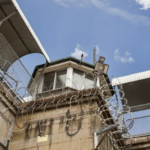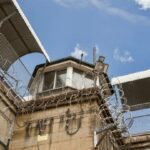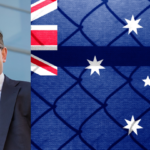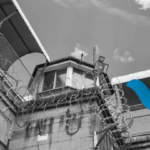UN Anti-Torture Body Condemns Australia, After Local Authorities Ran It Out of Town
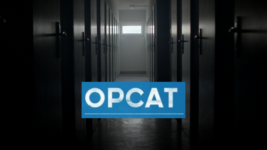
Since the mid-2016 revelations around the abuse of First Nations children at the hands of non-Indigenous adult officers in Darwin’s Don Dale youth justice centre, the understanding that torture is a practice that does take place in some deep recesses of the local criminal justice system has grown.
Further disclosures regarding rights violations in correctional centres have, for the most part, been located at child facilities, with reports coming from Ashley in Tasmania and WA’s Banksia Hill. Although mistreatment stories have also emanated from police stations and aged care too.
Former attorney general George Brandis is thought to have made his early 2017 announcement regarding his government ratifying the OPCAT (Optional Protocol to the Convention Against Torture) in December that same year, as a result of the fallout coming from Don Dale.
Adopted in 2002, the OPCAT provides additional protocol built upon the 1984 Convention against Torture, that sees states subject to it establishing local independent inspection bodies, which serve to monitor places where people are deprived of their liberty to prevent future human rights abuses.
Brandis’ decision also exposed this nation as having refused to ratify and implement OPCAT for years after having signed it in 2009, and while suggesting this was a delaying tactic may appear conspiratorial, running the UN OPCAT watchdog out of town in 2022 simply supports this assertion.
And now that same UN oversight body, the Subcommittee on Prevention of Torture (SPT), has released its report on Australia.
Blocked at the gate
The SPT outlines that it “sought to visit a broad range of places… in different parts of the country, including police stations and watchhouses, remand centres, prisons, immigration detention facilities, juvenile detention centres, closed psychiatric facilities and closed forensic facilities”.
“However, the subcommittee was unable to fully implement its mandate, having been denied access to both closed psychiatric facilities and closed forensic facilities in the state of Queensland and to all places of detention, except for federal immigration detention centres”, in NSW, its report continues.
Dated 20 December 2023, the report states that the SPT’s initial Australian visit was scheduled to occur over 16 October 2022 to 27th, however due to resistance, it was cut short on 23 October. And on 17 February last year, the SPT announced it was terminating the tour completely.
This is only the second time the UN inspection body has had to cancel one of its OPCAT visits, with the other recalcitrant nation state having been Rwanda.
The SPT visit came at a time when this nation had already missed its January 2022 OPCAT implementation deadline, with all states and territories having failed to nominate either an inspection body or pass laws to facilitate it, while NSW and Victoria had established nothing.
And when the SPT sought a series of post-visit assurances over 14 November 2022 to 31 January 2023, which aimed at facilitating the resumption of the nationwide inspection visit, local authorities were not forthcoming with any responses.
The SPT further reports that “the list of places of deprivation of liberty provided” by Australian authorities “included neither correct addresses nor statistics and information related to the number of detainees and their categories in each facility”.
Ignorance on reception
Australia OPCAT Network coordinator Steven Caruana wrote on X that the SPT report highlights the hostility the experts faced, and he noted that despite ending early, the UN body still recommended Australia raise the age, end mandatory detention and ban spit hoods and routine strip searches.
The report also stressed that the SPT was met by a fundamental lack of understanding amongst federal and state authorities across the country, which included in regard to its powers to gain unfettered access to places of deprivation of liberty and its ability to interview detainees.
Indeed, the SPT explained that it was met with a “discourteous”, and even “hostile”, reception by “government authorities and officials”, and from these meetings it could only gather that any local inspection bodies, or national preventive mechanisms (NPMs), will likely receive the same reaction.
Maintaining the status quo
In its comments in response to the SPT report, also dated 20 December, Australia states that it “has made significant progress towards full implementation of the OPCAT, with six out of nine jurisdictions having nominated an NPM”.
The NPMs, or national preventive mechanisms, are independent inspection bodies that randomly visit and monitor places of detention, and the reason NPMs impact differently to traditional assessment bodies is that OPCAT inspectors aim to prevent future human rights breaches.
The Subcommittee on Prevention of Torture (SPT) is comprised of 25 independent experts, which visit places of detention in all countries that have ratified the OPCAT, and it makes its own assessment and recommendations to the government of each nation.
And whilst our government is bold enough to suggest it’s made “significant progress”, the nation has missed two official deadlines, or three if you include an initial one year extension, and the federal and various state governments have delayed implementation due to squabbling over funding.
“Australia is committed to continuing the ongoing engagement and dialogue it currently has with the subcommittee,” the official government response concludes, which would seem to suggest that its delaying tactics, its lack of consideration and its downright hostility in regard to OPCAT will continue.
Looking the other way
Writing in the Australian on 29 December, Australian human rights commissioner Lorraine Finlay said that despite PM Anthony Albanese having just highlighted rights as one of the nation’s core values, “successive state and federal governments have failed to demonstrate” any commitment.
“The UN SPT report highlights the work that Australia still needs to do to fulfil our key human rights promise to prevent torture and ill-treatment in places of detention,” the commissioner remarked, and she went on to describe further “serious concerns based on observations” made by the SPT.
These include the “arbitrary use of restraints”, the huge number of people detained on remand, a rising trend in oversecuritising places of detention, poor conditions inside facilities, understaffing across the board, and “widespread practices that amounted to de facto solitary confinement”.
“Other concerns” raised were the “severe overrepresentation of Aboriginal and Torres Strait Islander peoples in prisons, serious concerns about conditions in youth detention centres, and insufficient… efforts to tackle the root causes of criminality in communities and recidivism.”
All these issues that the SPT raised have been exposed before. The need for reforms in these areas has been reported periodically and social justice campaigns are regularly staged against them. Yet, governments of every stripe fail to take action and instead, prefer to push these issues into a corner.
And nothing in the recent behaviour of government in response to OPCAT obligations since ratifying the treaty has done anything to counter criticisms that assert that those in power tend not to seek to reform the systems of detention in this country as the stark issues that exist are to design.
“This is about ensuring basic standards of treatment for people held in detention,” said Commissioner Finlay, as she called on federal and state politicians to work together on OPCAT implementation.
“We do not need more reviews or promises. Australia must urgently deliver on the commitment we made over six years ago when we ratified OPCAT, to prevent torture and ill-treatment,” she ended.


